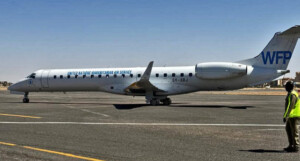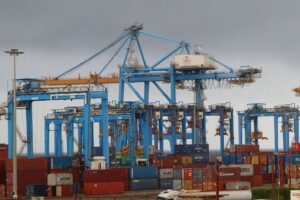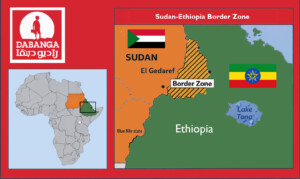Economist warns increased wages will hike inflation in Sudan
Economist Ahmed Hamid said that statements about increasing wages had contributed to the rise in prices, which in turn leads to increased rates of inflation. At a press conference in Khartoum on Tuesday, he said that monetary support does not solve the current economic crisis, demanding a change in the policies pursued since the era of the former regime, which led to the aggravation of the economic crisis.

Economist Ahmed Hamid said that statements about increasing wages had contributed to the rise in prices, which in turn leads to increased rates of inflation. At a press conference in Khartoum on Tuesday, he said that monetary support does not solve the current economic crisis, demanding a change in the policies pursued since the era of the former regime, which led to the aggravation of the economic crisis.
As reported by Radio Dabanga last week, Sudan’s Minister of Trade and Industry Madani Abbas has announced “important and unprecedented increases” of salaries in Sudan on April 20.
Minister Abbas explained that the Council of Ministers approved the recommendations of the report of the National Wages Task Force.
However at the Khartoum press conference on Tuesday, Ahmed Hamid pointed to “the chaos in gold production and the conflicting statistics on the quantities produced during the year, as the numbers range between 100 to 250 tons annually”.
He considered this “a clear indication of the state’s inability to put its hand on the gold sector”, demanding that the state enter gold production and obtain 50 per cent of corporate revenues and obtain an estimated proportion of the proceeds of private mining and demanded that the state monopolises the export of gold and sesame.
He considered the continuation of smuggling as “a failure of the military component in the country” and said Sudan should benefit from the experiences of Egypt and Tunisia in recovering the stolen money.
IMF
Meanwhile, the International Monetary Fund has warned that the Sudanese economy will continue its negative path unless the government undertakes decisive financial reforms.
In its latest country report on Sudan, the IMF says that while regime change has created a window of opportunity for fundamental reforms to address major macro imbalances and lay the groundwork for inclusive growth, the challenges facing the new government are daunting.
“The economy is shrinking, macroeconomic imbalances are large, competitiveness is weak, and the humanitarian situation is dire. Concerns about governance and corruption persist. Sudan’s listing as a state sponsor of terrorism by the United States also blocks progress toward HIPC debt relief and the clearance of large arrears to the IMF,” the report says.
It called on the government to tackle and gradually lift fuel subsidies while increasing spending at the same time on vulnerable sectors of society.
The IMF emphasised that the gradual liberalisation of the exchange rate is crucial in eliminating distortions that hinder investment and growth. It will enhance competitiveness and transparency, eliminate many currency practices and associated distortions, enhance the independence of the Central Bank and enhance financial revenues.
The IMF acknowledged that public support for the political and economic reforms sought by the government has eroded due to economic hardship.
Radio Dabanga’s editorial independence means that we can continue to provide factual updates about political developments to Sudanese and international actors, educate people about how to avoid outbreaks of infectious diseases, and provide a window to the world for those in all corners of Sudan. Support Radio Dabanga for as little as €2.50, the equivalent of a cup of coffee.












 and then
and then